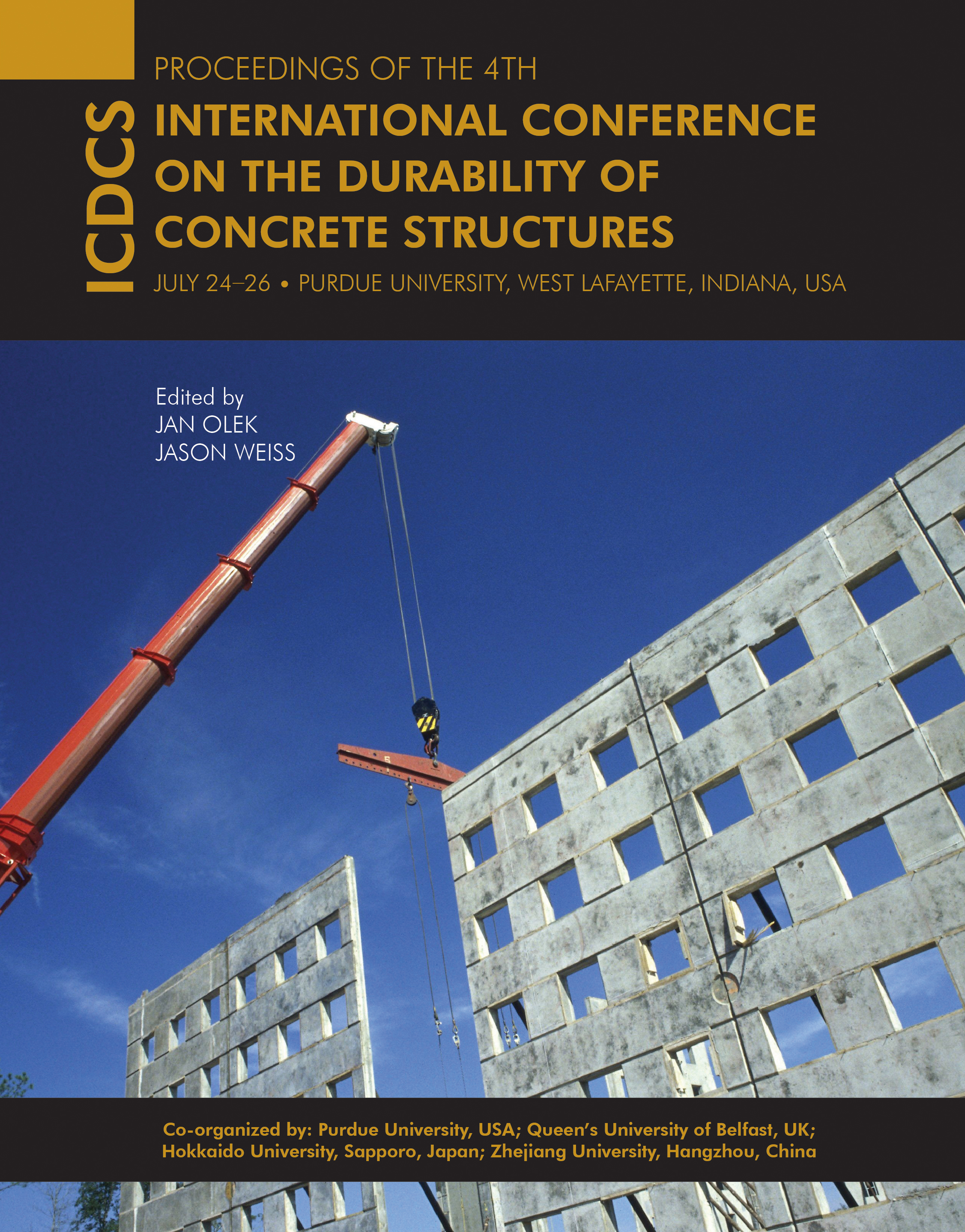Abstract
For concrete bridge projects in marine environments, attention must be paid to the reinforcement corrosion problems caused by chloride intrusion. As kinds of functional admixtures, which can reduce the reinforcement corrosion rate, corrosion inhibitors are becoming very popular in China in new bridge projects. Corrosion inhibitors cover both inorganic and organic inhibitors. Nitrite is representative of inorganic corrosion inhibitors, but its carcinogenicity has hindered its further development. Organic corrosion inhibitors such as small-molecule-based alcohol amine series are becoming the focus of attention. To guide the scientific applications of organic corrosion inhibitors, China is carrying out broad applications technology research. But the evaluation of the influence of organic corrosion inhibitors on the behavior of reinforcement corrosion is mostly carried out in simulated liquids. This method simplifies the actual service environment but ignores the concrete protective layer, the form of chloride intrusion, and environmental effects, which must be considered for the application of organic corrosion inhibitor technology in practical engineering. The experimental work of this paper was conducted on a coastal bridge named Guan He Bridge in China. The influence of organic corrosion inhibitors on the reinforcement corrosion behavior in the concrete bridge structure was investigated considering the conditions of concrete protective layer change, form of chloride intrusion, and different environments through laboratory simulations. Actions and effects of organic corrosion inhibitors were comprehensively evaluated, thereby enriching the application field of organic corrosion inhibitors.
Date of Version
January 2014
DOI
10.5703/1288284315387
Recommended Citation
Shi, Liang; Ye, J.; Chen, C. C.; Wu, Y.; and Liu, J. Z., "Analysis of the Influence of Organic Corrosion Inhibitors on Corrosion of Reinforcement in Concrete Bridge Structure Under Simulated Field Service Environment" (2014). International Conference on Durability of Concrete Structures. 2.
https://docs.lib.purdue.edu/icdcs/2014/corrosion/2
Included in
Analysis of the Influence of Organic Corrosion Inhibitors on Corrosion of Reinforcement in Concrete Bridge Structure Under Simulated Field Service Environment
For concrete bridge projects in marine environments, attention must be paid to the reinforcement corrosion problems caused by chloride intrusion. As kinds of functional admixtures, which can reduce the reinforcement corrosion rate, corrosion inhibitors are becoming very popular in China in new bridge projects. Corrosion inhibitors cover both inorganic and organic inhibitors. Nitrite is representative of inorganic corrosion inhibitors, but its carcinogenicity has hindered its further development. Organic corrosion inhibitors such as small-molecule-based alcohol amine series are becoming the focus of attention. To guide the scientific applications of organic corrosion inhibitors, China is carrying out broad applications technology research. But the evaluation of the influence of organic corrosion inhibitors on the behavior of reinforcement corrosion is mostly carried out in simulated liquids. This method simplifies the actual service environment but ignores the concrete protective layer, the form of chloride intrusion, and environmental effects, which must be considered for the application of organic corrosion inhibitor technology in practical engineering. The experimental work of this paper was conducted on a coastal bridge named Guan He Bridge in China. The influence of organic corrosion inhibitors on the reinforcement corrosion behavior in the concrete bridge structure was investigated considering the conditions of concrete protective layer change, form of chloride intrusion, and different environments through laboratory simulations. Actions and effects of organic corrosion inhibitors were comprehensively evaluated, thereby enriching the application field of organic corrosion inhibitors.





